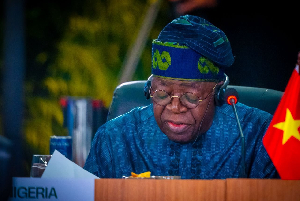Business News of Sunday, 4 May 2025
Source: www.punchng.com
Telcos’ $1bn network investment to boost GDP, operators say
Nigeria’s telecom operators are injecting $1bn into upgrading aging network infrastructure, a move executives say will boost the country’s economy and connectivity across a market of 160 million subscribers.
The investment, including MTN Nigeria’s N202.4bn capital expenditure for the first quarter of 2025, signals robust capital spending to address coverage gaps and rising data demand, three industry leaders told Sunday PUNCH.
Operators have already placed an order worth $1bn for network equipment from Chinese manufacturers, according to the Nigerian Communications Commission, doubling last year’s spend. The equipment is yet to be shipped and deployed in the country.
This development follows a 50 per cent tariff hike by the telecom regulator to offset soaring operating costs. Much of the impact of this tariff adjustment, first in 11 years, would be felt in Q2 2025.
Africa’s largest telecom market faces inflation above 20 per cent and naira volatility, pressuring operators. The $1bn push reflects confidence in Nigeria’s digital demand, but delays could blunt its impact. Executives project a stronger, more connected economy if the plan delivers.
“This massive revamp of telco infrastructure indicates a positive shift in the sector,” Head of Converged Digital Infrastructure at Africa Open Access Data Centres, Obinna Adumike, said. Upgrading to newer technologies like 4G and 5G, especially in rural areas that still rely on 2G, is crucial for inclusive growth.”
The telecom sector contributed 14.40 per cent to GDP in Q4 2024, according to the National Bureau of Statistics. With regulators eyeing a 25 per cent contribution through infrastructure, policy reforms, and digital inclusion, the $1bn push is a critical step.
Adumike noted that improved infrastructure is foundational to digital inclusion, especially in underserved communities. He emphasised that robust networks drive productivity, enhance access to digital tools, and stimulate local economies.
MTN said its Q1 2025 investment reflects a 159 per cent increase from the same period last year, part of its broader “Ambition 2025” strategy focused on accelerating digital and financial inclusion.
Airtel Nigeria, another major player, has yet to publish its Q1 2025 report, but its parent company, Airtel Africa, reported $456m in capital expenditure for the nine months ending December 2024.
The Executive Director at Adaba Consult, Ejikeme Onyeaso, echoed this view, calling the investment a deliberate and strategic step aligned with promises made by operators during the tariff review process.
“MTN’s report showing N202.4bn committed to network upgrades in Q1 alone is a clear signal that telcos are backing words with action,” the telecom consultant said. “For subscribers, this means better call quality, fewer dropouts, and improved value for money.”
He urged the government and regulators to hold operators accountable while also providing the enabling environment for sustained investment. “We must not ignore the broader impact: improved telecom infrastructure contributes directly to GDP, supports job creation, and enhances quality of life, he added.
However, not all the infrastructure challenges can be solved with fibre cables and towers.
Director of Cybersecurity at the National Information Technology Development Agency, Mohammed Ahmed, said the increasing vulnerability of fibre-optic infrastructure, particularly in conflict-prone regions, underscores the need for alternative solutions.
“Satellite technology has evolved and offers wider coverage with less susceptibility to physical disruption,” Ahmed said. “Integrating satellite services into Nigeria’s connectivity mix can bridge gaps in areas where deploying fibre or towers is impractical or unsafe.”
The NCC, in its earlier statement approving the tariff hike, emphasised that improved infrastructure is essential for meeting rising data demand and expanding Nigeria’s digital economy.












